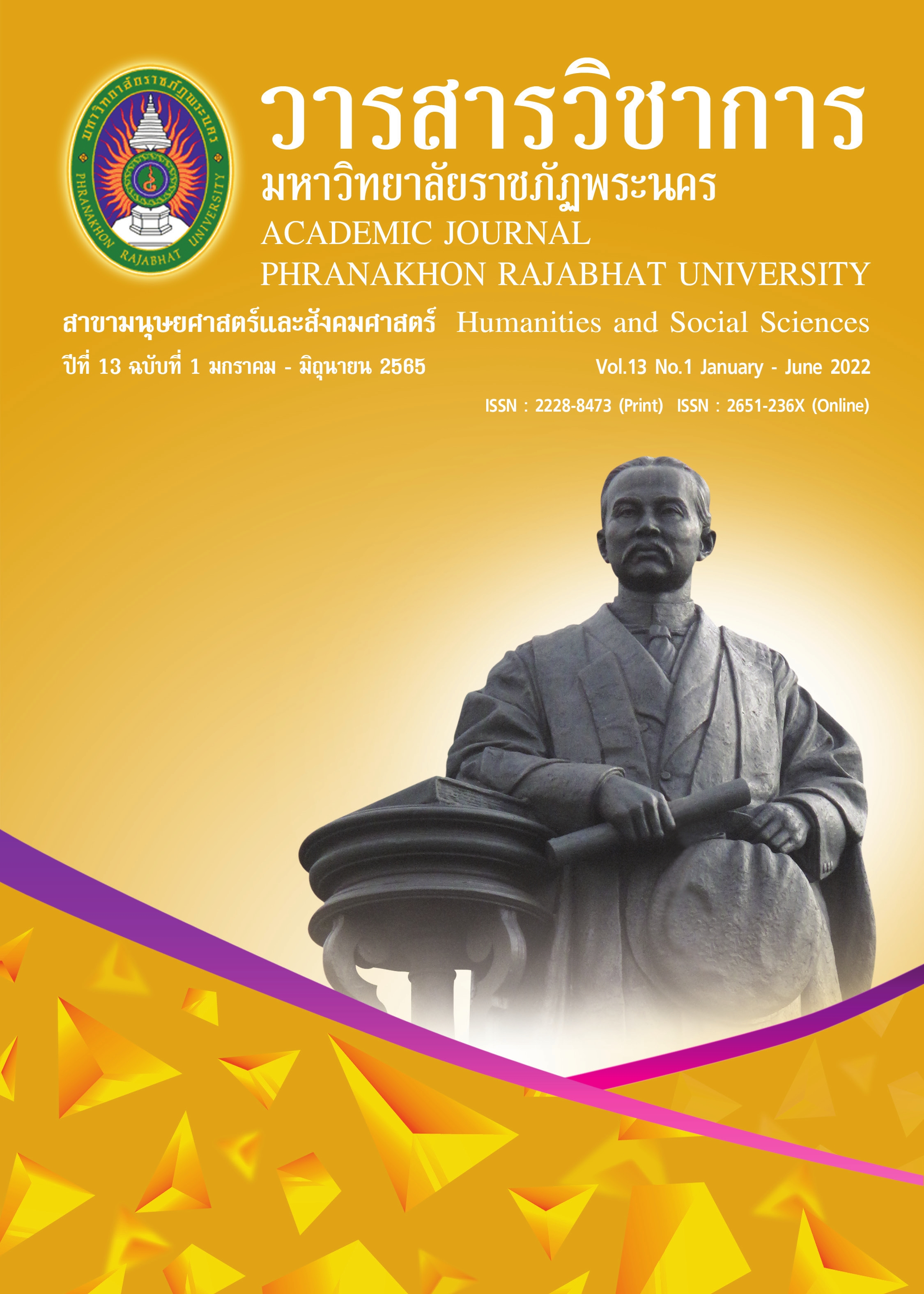GUIDELINES FOR PROMOTIING SUSTAINABLE EMPLOYMENT OF PERSONS WITH DISABILITIES
Keywords:
Problems of Employment, Employment for Persons with Disabilities, Sustainable EmploymentAbstract
Thailand had a vision for developing the quality of life among persons with disabilities and realized their problems. Consequently, the Empowerment of Persons with Disabilities Act, B.E. 2550 (2007) was enacted, particularly the provision 33, 34, and 35 which emphasized the employment, career promotion, and direct employment protection of persons with disabilities. Nevertheless, only 36.83 percent of persons with disabilities had job. From the study on problems of employment of persons with disabilities gained from both public and private sectors, there were sustainable solutions for developing the employment of persons with disabilities: 1) data management related to persons with disabilities of the Department of Empowerment of Persons with Disabilities and Department of Employment should be linked, 2) law amendment should be done to guarantee the employment of persons with disabilities, 3) regulations for approving the employment project for persons with disabilities based on the provision 35 should be relaxed in order to sustainably increase the employment opportunities for persons with disabilities, 4) claim of rights regarding the empowerment of persons with disabilities according to the provision 35 should be amended, revised, and adapted, 5) registration with the associations and foundations of persons with disabilities was recommended in order to enhance the cooperation and supervision, 6) government agencies should regularly provide knowledge to the enterprises, 7) all public agencies should coordinate for the preparation and potential development of persons with disabilities, 8) special benefits should be granted to private providers in education for the preparation and potential development of persons with disabilities, and 9) incentive programs should be generated to the organization that employed persons with disabilities beyond the number allowed by law.
References
Avirut Chatmalathong. (2012). Developing Policy Recommendations for Training and Career Development for Enhancement of Potential Thai Disabled Workers in the Central Region. Chulalongkorn University, Bangkok.
Charoentaveechoke, V. (2017). Development of Employment of Persons with Disabilities in Enterprises in Bangkok. Thammasat University, Bangkok.
Department of Empowerment of Persons with Disabilities (DEP). (2017). The 5th National Quality of Life Development Plan for Persons with Disabilities 2017-2021. Bangkok: Department of Empowerment of Persons with Disabilities.
Department of Empowerment of Persons with Disabilities (DEP). (2021). Statistics on the Employment of Persons with Disabilities in the Workplace as of March 31, 2021. Retrieved from https://dep.go.th/th/law-academic/service_stats/stat-depjob [2022, 16 Jan.].
Department of Empowerment of Persons with Disabilities (DEP). (2022). Situation of Persons with Disabilities 31 December 2021 (Quarterly). Retrieved from https://dep.go.th/images/uploads/files/Situation_dep64.pdf [2022, 25 Jan.].
Department of Empowerment of Persons with Disabilities (DEP). (2022). Statistics of persons with disabilities as of December 2021. Retrieved from http://ecard.dep.go.th/nep_all/file/Stat2564/stat_Dec64.pdf [2022, 7 Jan.].
Duangthipsirikul, S. (2015). Policy Brief: Vol. 22 Persons with Disabilities Database: An Important Mechanism Waiting for Development. Retrieved from https://www.hitap.net/documents/150477 [2021, 25 Nov.].
Kanchanachitra, S. et al. (2013). The Final Study Report on Employment Promotion and Self-Employment Promotion Project for Persons with Disabilities according to the Persons with Disabilities Empowerment Act B.E. 2550. Bangkok: Siam University.
Ministry of Social Development and Human Security (MSDHS). (2011). Ministerial Regulations: To Specify Numbers of Employees with Disabilities that the Employers, Entrepreneurs and Government Agencies Shall Recruit in Their Workplaces, and the Amount of Money that the Employers or Entrepreneurs Shall Send to the Fund for Empowerment of Persons with Disabilities. Royal Thai Government Gazette. 128(30), 7-9.
National Office for Empowerment of Persons with Disabilities (NEP). (1991). Persons with Disabilities Empowerment Act, B.E. 2534. Retrieved from http://web1.dep.go.th/sites/default/files/files/law/42.pdf [2021, 7 Dec.].
National Office for Empowerment of Persons with Disabilities (NEP). (2007). Persons with Disabilities Empowerment Act, B.E. 2550. Retrieved from http://web1.dep.go.th/sites/default/files/files/news/2.pdf [2021, 7 Dec.].
Onkaew, K. (2019). The Expectations, Problems, and Obstacles of the Employers on the Employment of Persons with Disabilities Abiding by the Persons with Disabilities Empowerment Act, B.E. 2550 and its amendments (No.2), B.E. 2556. Journal Of Ratchasuda College, Research and Development of Persons With Disabilities. 15(1), 35-49.
Tavinpakti, T. (1998). Clearing the Way of Rehabilitation to the Sustainable Development of Persons with Disabilities. Bangkok: Department of Public Welfare.
Downloads
Published
How to Cite
Issue
Section
License
Copyright (c) 2022 Academic Journal Phranakhon Rajabhat University

This work is licensed under a Creative Commons Attribution-NonCommercial-NoDerivatives 4.0 International License.
"บทความวิชาการในวารสารฉบับนี้ ถือเป็นความรับผิดชอบของผู้เขียนเท่านั้น"
สงวนลิขสิทธิ์ตามพระราชบัญญัติลิขสิทธิ์




